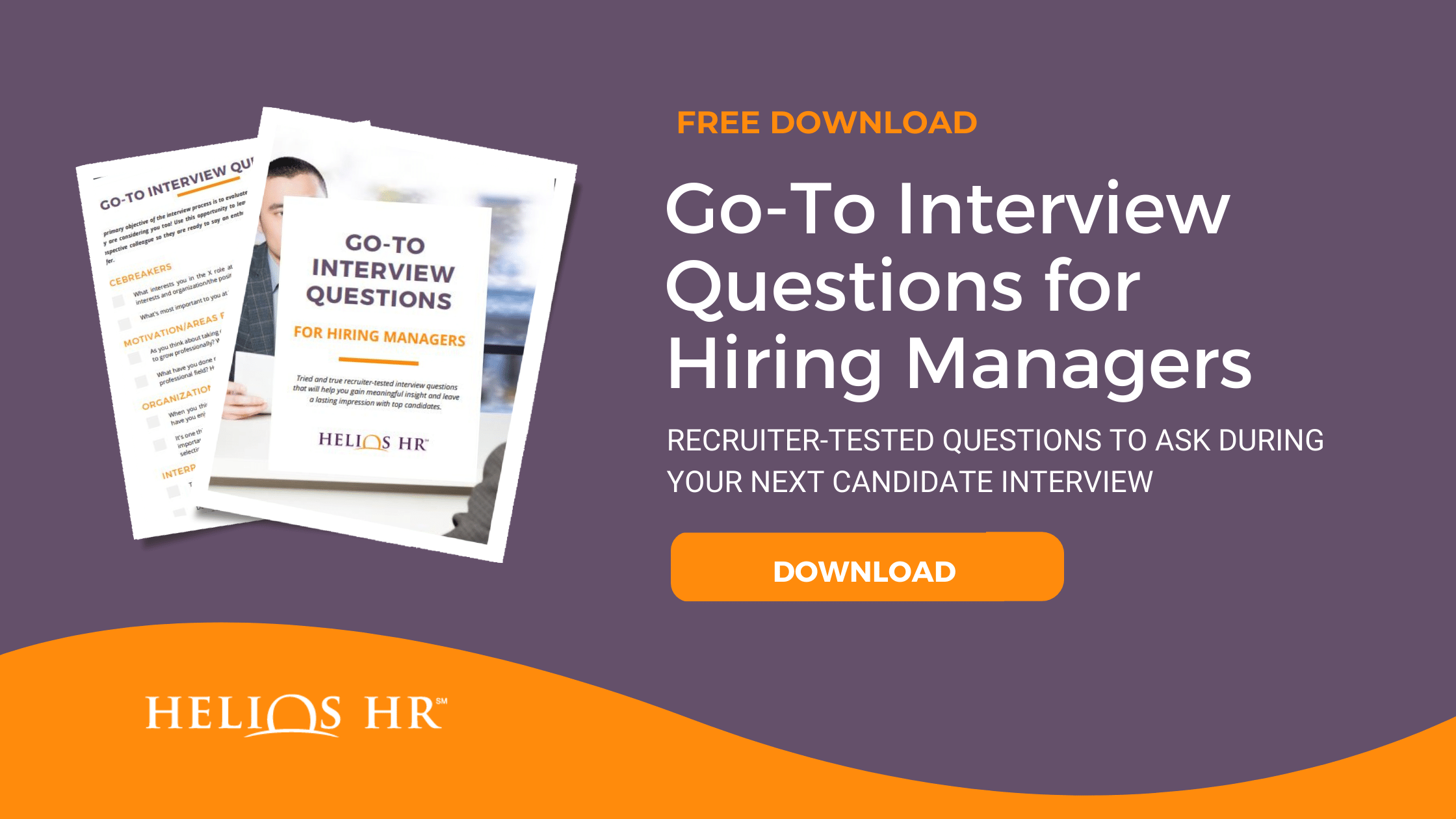By: Anna Cowell on May 5th, 2022
Candidates Declining Your Job Offer? Your Interviews May Be The Problem
Talent Acquisition | Retained Search | Recruitment outsourcing
Are you experiencing problems with your top candidates not accepting your job offers? Have you ever thought about how the questions you ask in your interview process may be hurting your chances?
A positive candidate experience is always essential to hiring, especially in the current candidate-driven market. People are more empowered than ever to decide where they want to work, and the interview process is their preview of what the job would be like.
Make sure your interviews leave candidates excited about the prospect of taking the job and working with your company.
How do you do that?
How to Avoid Hiring Problems with Your Interview Process
1) Consider your interview questions from the perspective of your candidates.
Understand what information you need to determine whether the candidates have the technical skills required to do the job and the shared values that will allow them to succeed in your culture. That will let you tailor thoughtful, targeted interview guides that can be shared between interviewers to prevent a candidate from being asked the same thing multiple times.
When developing your questions, be mindful of what the questions could communicate. Within the questions, you can give candidates an understanding of the most critical elements of the job and your culture by how much time you spend on a topic.
2) Focus on the essential skills with most of your questions.
As the candidate provides examples, point out the parallels between their experience and what they would be doing in the job. If you ask questions about skills or experience that are "nice to have's" (i.e., proficiency in a language that isn't required or a specific software), explain that. Reassure candidates these aren't dealbreakers, and you are just trying to get a complete sense of their background.
A candidate who leaves the interview feeling like they were struggling to come up with examples may self-select out, assuming they don't have the knowledge needed to be successful. Rather than let them wonder if they can do the job, this can instead be a chance to point out the opportunity in the role. Explain how you plan to onboard the person who takes the position and the skills they can expect to build.
👉 FREE DOWNLOAD >> RECRUITER-APPROVED GO-TO CANDIDATE INTERVIEW QUESTIONS
3) Each person involved in the hiring and interview process makes an impression.
Interviewers sometimes feel reluctant to "sell" their job. But closing the candidate isn't something that should happen only when you make the offer.
Each person involved in the process has a role to play, and everyone should come prepared to talk about what they like about the company. As you meet with the candidate, kick off by sharing how excited you are to have the chance to interview them. Take a few minutes to highlight the aspects of the job that will be appealing. Share the growth potential for the position.
Ensure all interviewers know their role in the interview process and the questions are coordinated among them. You don't want multiple people to ask the same or nearly the same question. It gives the impression that the interviewers aren't communicating and may emphasize things you aren't intending to or factors that are not core to the job.
I once interviewed for a position and met with several small groups of employees over about two hours. Everyone I spoke with seemed pleasant and professional, but each group asked me about my experience working with difficult people. This may have been an organization with a troubled culture full of unreasonable people. Most likely, though, the interviewers knew there were one or two strong personalities that someone in the position would need to be able to navigate. Or possibly they were reacting to feedback from the person previously in this role. But as a candidate, I didn't have enough information to tell the difference, so I assumed the worst.
Your candidates will also be working with incomplete data, so make sure you create a narrative that accurately reflects the job and organizational culture. There are likely aspects of the role that have frustrated people in the past or elements of your culture that aren't a match for some. Designate point people to ask planned, targeted questions with probes and follow-ups to explore those areas.
4) Share a realistic preview of the role.
You want candidates to have as much of an understanding of the job as possible, so share a realistic preview of the role. It is better to have a well-informed candidate determine it isn't the right job for them than to hire someone who looks good on paper but ends up struggling or leaving after a few months.
So, to find out whether this person would be able to tolerate last-minute, high-pressure requests or a highly bureaucratic culture, ask direct but matter-of-fact questions. Describe the typical context of this position and what would be expected of them in this role. Then give them a chance to ask questions and clarify if needed.
Investing in well-thought-out, relevant questions can ensure you identify the best candidate and they come away wanting to work for you. As a recruiting consultant, I always recommend spending a few minutes reviewing your interview guides and updating your go-to questions to make sure they are telling the story you intended.
See our list of recruiter-tested interview questions if you think yours need a refresh.
The primary objective of the interview process is to evaluate your candidate. But remember they are considering you too! Use this opportunity to leave a positive impression on your prospective colleague so they are ready to say an enthusiastic yes when you make the offer.





